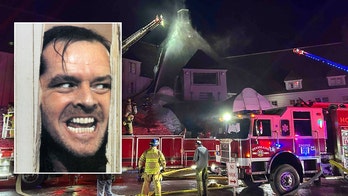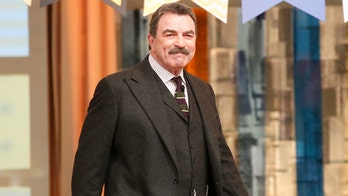In a sad twist of fate this past weekend, Paul Walker – the star of the “Fast & Furious” film franchise – was killed alongside friend Roger Rodas in an explosive car crash in Santa Clarita, Calif. But as life seemingly imitates art, many are questioning how much responsibility Hollywood movies like “Fast” carry when it comes to glorifying reckless driving.
“Movies are about fantasy, but they have real-life impact. The lesson Hollywood should be teaching is to live responsibly, but too few in Hollywood live that way,” Dan Gainor, vice president of business and culture at the Media Research Institute, told FOX411. “Everything Hollywood does influences our culture.”
“Fast & Furious,” which was midway through filming its seventh installment when Walker died, is certainly not the only movie that glorifies pushing a vehicle at crazy speeds. There’s “Getaway” and “Gone in Sixty Seconds” – to name just a couple more.
According to the Governors Highway Safety Association, speeding as a contributing factor in fatal auto wrecks has increased by a whopping 30 percent between 2000 and 2011. Last week, President Obama spoke to entertainment industry executives at DreamWorks Animation’s campus in Glendale, Calif., urging them to take “responsibility” when it comes to guns and on-screen violence. But some in show business say that is not the only issue that needs to be addressed.
“Hollywood does not present the challenges of driving in a realistic manner,” said entertainment attorney Julian Chan. “It often shows people easily getting out of crashes and rarely shows bystanders being injured.
“But street racing or reckless driving does not seem to be one of the hot topics. Treating reckless driving as something glamorous without consequences encourages people to emulate such behavior off the set. Perhaps now is the time to present the risks of high-speed driving in the same light – but maybe that is just not as ‘sexy’ a difference as guns are for the political climate.”
Others staunchly defended the film franchise need for speed, and Hollywood's creative license in general.
"The industry's role is to be true to the craft of filmmaking and to provide talented creator with a platform," said producer Madison Jones, co-founder of De Passe Jones. "I don't believe a creator should follow any other muse than his or her creative inspiration."
The issue has also prompted debate amid the Twitterverse.
"Sometimes even Hollywood can't separate movies from reality #Paul Walker. His movies took a lot of lives including his own," wrote one fan, as others argued that you "can't blame" the movie machine for the tragedy.
Hollywood producer Gary Michael Walters noted that films reflect American society, and he said totally curbing visceral action and violence would have very little impact on society at-large.
“We should always be aware of our responsibility here and not pursue every drop of profit at any cost,” he said. “It is easy to point the finger at Hollywood, but even a complete whitewashing of Hollywood films would have minimal impact on these circumstances.”
Filming for “Fast 7” was shut down after the Walker tragedy, but it is expected that it will resume and that the film will be released next summer. Given the nature of the circumstances, though, the studio may tread more carefully with its marketing this time around. The trailer for the sixth installment included everything from hand-to-hand combat, gun fights, at least six car crashes, explosions and even a tank crushing cars on a highway.
“Unless someone wants to claim that is responsible behavior, they are going to have to play it low-key,” Gainor said.






